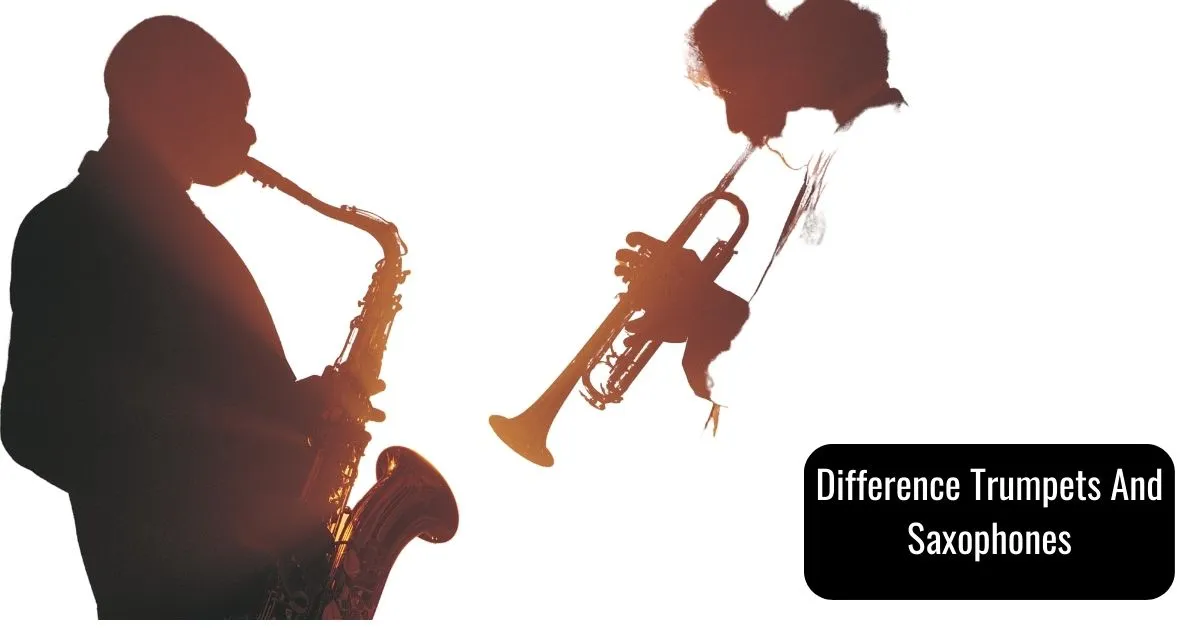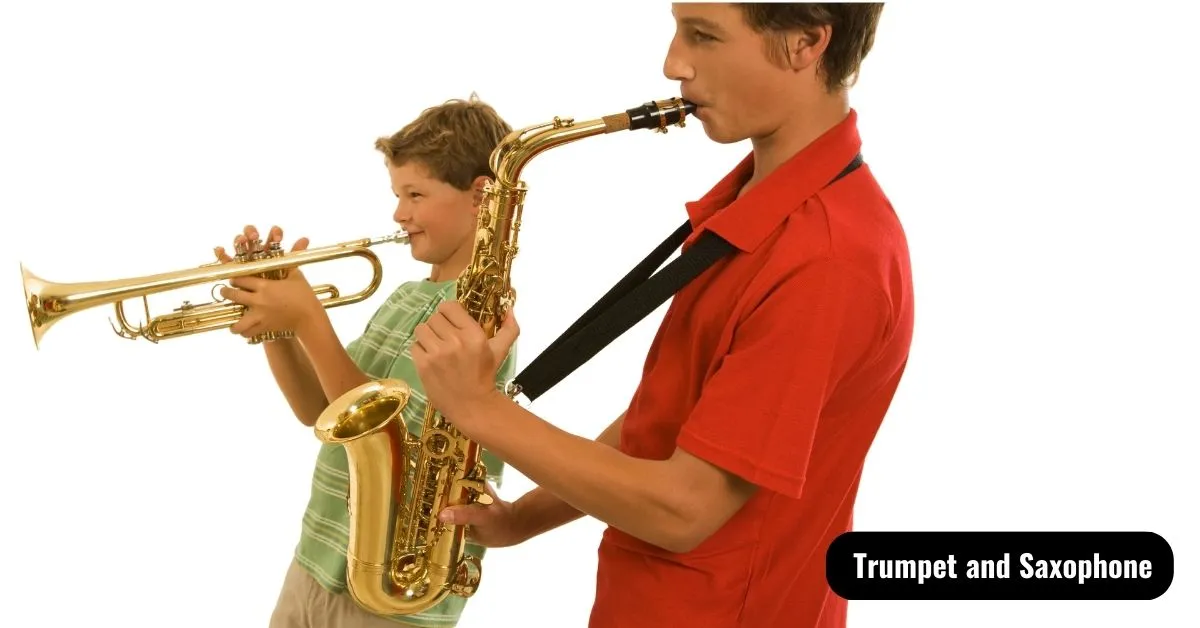The main difference between trumpet and saxophone is that trumpet is a brass instrument that plays high-pitched melodies, while saxophone is a woodwind instrument that produces a richer and lower tone. Trumpet and saxophone could be said to be two of the most iconic instruments in modern music history.
Both of these instruments belong to the wind group and require the breath of a musician to produce sound. As already mentioned, trumpets are made of brass and often produce bright and punchy sounds, while saxophones are made of metal and produce sultry, mellow sounds.
The two instruments are popular in different music genres such as jazz, blues, pop, rock, and classical music. In this article, we’ll take a closer look at the differences between trumpet and saxophone.
Defining The Trumpet And The Saxophone
The trumpet and saxophone are two of the most iconic musical instruments with distinct sounds. The trumpet is a brass instrument with three valves operated by the fingers. Its sound is bright and sharp, making it popular in jazz and classical music.
Saxophones, on the other hand, are made of brass but have a reed mouthpiece similar to a clarinet. They come in various sizes, from the small soprano to the large baritone. Saxophones produce a warm, full-bodied sound that’s known for its ability to convey emotions.
Both instruments have a rich history, with the trumpet being traced back to ancient times and the saxophone invented in the 19th century. Understanding their mechanics and history can help you appreciate their beauty and appreciate the music they produce.
Understanding The Trumpet And Saxophone’S Sound Production
The sound production of a trumpet and saxophone involves complex physics. The trumpet creates its sound by a buzzing of the lips against the mouthpiece. The saxophone, on the other hand, produces sound through a reed that vibrates against the mouthpiece.
Different types of trumpets and saxophones produce varying tones and qualities of sound, such as cornets, flugelhorns, alto, tenor, and baritone saxophones. Players use various techniques to manipulate the sound production, such as embouchure control, articulation, and breath support. By understanding the differences between the two instruments and their sound production methods, one can better appreciate and differentiate the specific qualities of each.
Exploring The Differences Between Trumpets And Saxophones

Trumpets and saxophones are both wind instruments that are revered for their distinct sound. One of the main differences is the timbre, or tone, produced by each instrument. Trumpets produce a bright, piercing sound, while saxophones have a smoother, warmer tone.
Another difference is the way in which the instruments articulate and attack notes. Trumpets require a sharp attack to produce a clear sound, whereas saxophones are played with a more legato style. Additionally, the range of notes that each instrument can produce varies.
Trumpets are known for their high, powerful notes, while saxophones have a greater range of low and mid-range notes. Understanding these differences can help you choose which instrument is right for your musical style and personal preference.
Similarities Between Trumpets And Saxophones
Both trumpet and saxophone belong to the brass family, therefore, share some similarities. Breathing techniques required by both instruments are similar, with deep breaths taken before playing. When playing, a proper posture and stance must be maintained to produce a high-quality sound for both horns.
Additionally, proper breath control is key. Despite their differences in sound and shape, both trumpets and saxophones require a great deal of practice and dedication to master. With consistent effort, students can eventually develop the skills needed to play either instrument proficiently.
Furthermore, once individuals learn one of these instruments, they can master the other quicker since they share certain similarities. Overall, these similarities in breathing techniques, playing positions, and other aspects can make an excellent foundation for music students to learn and appreciate both trumpet and saxophone music.
Frequently Asked Questions On What Is The Difference Between Trumpet And Saxophone
What Is A Trumpet?
A trumpet is a brass instrument with three valves that creates lively, bright and clear tones.
What Is A Saxophone?
A saxophone is a single-reed woodwind instrument with a brass body that creates smooth and mellow tones.
What Is The Difference Between A Trumpet And A Saxophone?
The key difference between the two is the type of sound they produce. Trumpets play bright, clear notes while saxophones create a smoother, more mellow sound.
What Are Some Similarities Between A Trumpet And A Saxophone?
Both the trumpet and saxophone require excellent breath control, embouchure strength, and finger dexterity to play well, and both are used in various genres of music.
Which One Is Easier To Learn: Trumpet Or Saxophone?
Both instruments require practice and time to learn. However, some people find the saxophone more accessible because it produces a more pleasant sound at a beginner level and requires less physical strength to play.
Conclusion
The saxophone and trumpet are two popular musical instruments that are uniquely different from one another. Each has its characteristics and place in the music industry, and both require dedication, practice, and commitment to master. Whether you are choosing between the saxophone and trumpet or seeking to learn about both, it is essential to understand what sets them apart.
Trumpets are ideal for those who want to be the main highlight of a musical ensemble as they are often used for solos passages. Conversely, saxophones produce an expressive sound, making them ideal for jazz and other types of music, especially when played in a group.
Ultimately, the choice between the trumpet and saxophone comes down to individual preference, playing style, and musical goals. Whether you choose the trumpet, saxophone or both, it is essential to put in the work and time necessary to excel at your craft to produce beautiful music.

Welcome to my blog! My name is Marjona Ferdows and I am a passionate trumpet lover. I have been playing the trumpet since I was a child, and it has always been one of my greatest joys in life. My blog is a place where I want to share my passion for the instrument with all of you. Here you will find articles about using the trumpet, tips and techniques, reviews on different models, and more.

